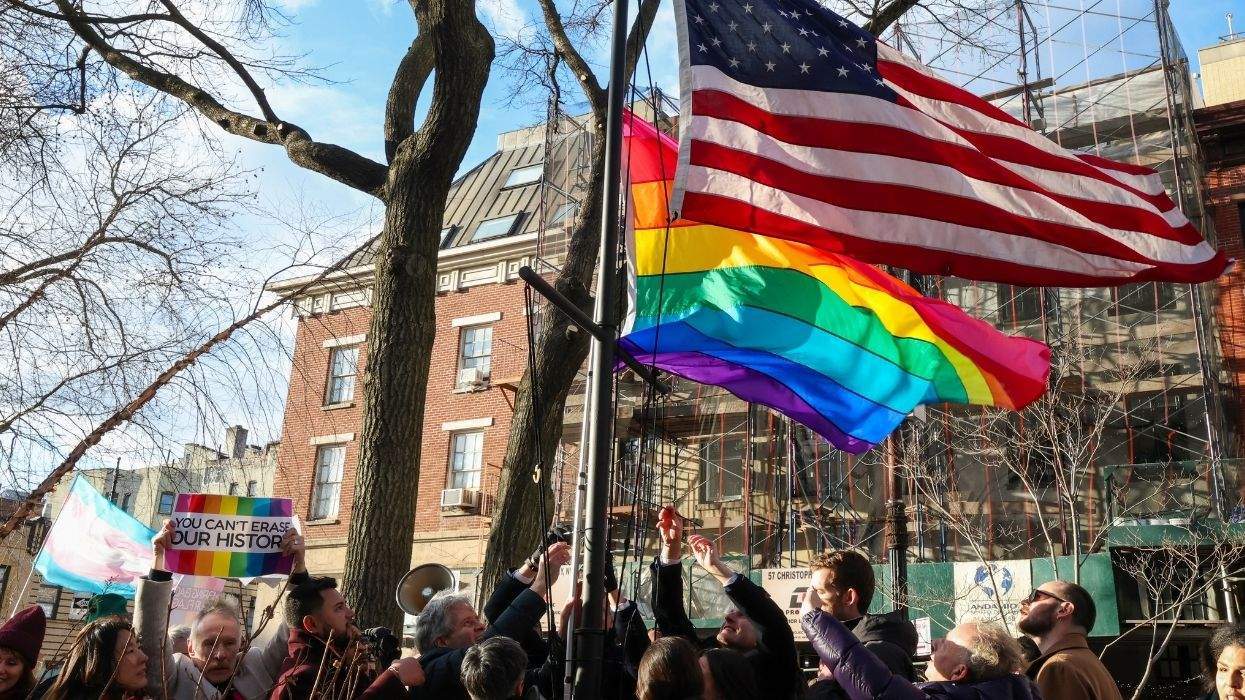Could a libel law under consideration in Florida shield those discriminating against LGBTQ people from being called out for bigotry?
Critics fear that proposed legislation would mean anyone accused of discrimination based on sexual orientation or gender identity to not only shirk accountability but sue accusers for $35,000 in damages. And according to some attorneys’ reading of the proposal, if accusers point to someone’s religion as the root of the discrimination, it wouldn't matter if that were true.
Florida Rep. Alex Andrade, a Republican, introduced the House Bill 991 shortly after Gov. Ron DeSantis promised a re-evaluation of the state’s defamation laws. Andrade said the legislation will create more accountability and protect those wrongly accused.
But he dismissed the notion the legislation would eliminate truth as a defense in libel and slander cases.
“Anyone who is concerned somehow the truth no longer matters in a defamation claim needs to go review the rules of evidence," Andrade told The Advocate. “They are speaking from authority when they clearly have none.”
But attorneys zeroed in on several paragraphs of the bill that specifically reference LGBTQ issues. The bill would enshrine in Florida’s defamation standards that an “allegation that the plaintiff has discriminated against another person or group because of their race, sex, sexual orientation, or gender identity constitutes defamation per se.”
What set off most alarms for advocates was the seeming absolution of the accused. First, the legislation states: “A defendant cannot prove the truth of an allegation of discrimination with respect to sexual orientation or gender identity by citing a plaintiff's constitutionally protected religious expression or beliefs.” It then goes on to say the same of “a plaintiff's scientific beliefs.”
If a plaintiff who sues an accuser under this provision of the law prevails in court, they would be entitled to damages of at least $35,000, under the bill.
Harvard Law clinical instructor Alejandra Caraballo called Andrade’s law the “Empower Bigots Act.”
“It would classify accusations that someone engaged in discrimination as defamation per se with $35k minimum in damages,” Caraballo tweeted. “If it involves LGBTQ people and someone's beliefs, truth is no defense. This is absolutely chilling.”
Andrade scoffed at the suggestion. He said his legislation critically only applies to discrimination that causes actual harm.
For example, if someone called him a racist, even though he feels that’s untrue, he could not successfully sue them for expressing a negative opinion about him. But if someone said he had schemed to deny public housing based on race through redlining or other discrimination, the accuser better be prepared to prove that in court.
Asked why the language about religious and scientific reliefs specifically related to orientation and identity was included, Andrade said his concern was people leveling accusations based purely on someone’s religion. He does not want someone to make an allegation of discrimination and defend that purely on the accused being a Muslim or “Bible thumper.”
But the language has drawn criticism from around the country.
“I've been practicing First Amendment law for about ten years. I've never seen anything like this proposed Florida law & this section in particular,” tweeted Matthew Schafer, media law chair for the New York City Bar Association. “This is precisely the concern of rolling back limits on libel. States will use libel to bend the public dialogue to their own will.”















Charlie Kirk DID say stoning gay people was the 'perfect law' — and these other heinous quotes
These are some of his worst comments about LGBTQ+ people made by Charlie Kirk.